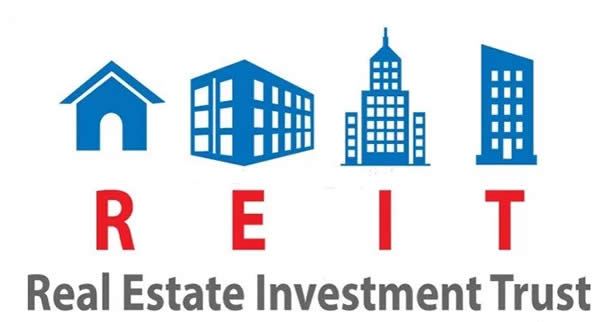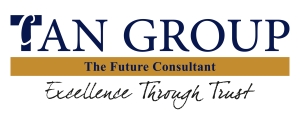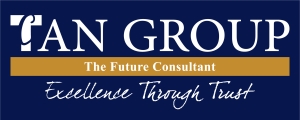The tourism industry is slowly coming off its worst year in history. Last year saw the lowest occupancies in the history of the industry. Business travel was completely shuttered, and leisure struggled in most markets as planes were grounded. Often in the darkest of hours, the best stocks and investing opportunities present themselves.
Now, travel outlooks remain cautious but optimistic. Hotels are reopening and accepting bookings and the share prices of publicly traded hotel stocks as well as hotel REITS, or Real Estate Investment Trusts, are shifting back to post-Pandemic levels.
The uptick in these share prices is inline with Wall Street’s overall performance lately. With the vaccine rollout combined with Congress’ $1.9 trillion fiscal stimulus package have boosted investors’ confidence.

They were also encouraged by the Labor Department’s jobs report for February showing that employers added hundreds of thousands more jobs than expected. In turn, the S&P 500 and the Dow Jones Industrial Average both showed gains, an indicator that the market could be headed towards an upswing.
So whether you’re new to investing or already have experience in other investment sectors, now is the time to consider putting your money in the hotel sector. It’s an opportunity to put the adage “buy low, sell high” to the test. Once travel and tourism return to pre-pandemic levels, so will these stock prices. If you follow the traders on Reddit’s Wall Street Bets (WSB), you’ll know that the “tendies” or financial gain on the stock market, are lower when you buy stocks at their peak.
Like this group of non-traditional Reddit investors and cryptocurrency speculators, accessing the metrics on hotel stocks should also reflect the new normal that we’re living in. Gauging a stock’s one-year, three-year or five-year performance today won’t present an accurate picture of its future potential as the drastic dip that all stocks experience in 2020 will dramatically skew that outlook.

Hotel Chain & Casino Stocks
There are also a variety of hotel investments to consider, which translates to a number of diverse money-making opportunities. There are, of course, the major hotel brands like Marriott International Inc. and Hilton Worldwide Holdings Inc. as well as casino resorts like Wynn Resorts Limited and Caesars Entertainment, with which you’re probably already familiar.
These are C-corporations that are primarily built on the business of hotel management, marketing and branding and often, franchise licensing. They pay corporate taxes on dividends. This popular mid- to large-cap stocks are popular investments because their brand names are well established globally and investors have likely stayed in the hotels. That first-hand experience of the products also tends to result in positive sentiment among investors, which helps to keep stock prices at reasonable levels and make them relatively safe bets.
Prior to the pandemic, the most noticeable trend happening among these hotel companies was the introduction of new brands. The intent behind this move was to create more opportunities to expand franchise and management contracts in markets that were already saturated by other brands under the companies’ umbrella.
However, the pandemic has stalled this growth strategy. Similarly, pipeline development also slowed and in some instances reversed course as hotel owners and investors pulled back once the pandemic hit and existing hotels began closing. Consequently, stock prices may remain somewhat stagnant until expansion plans are underway again.
Marriott International Inc. is arguably one of the most popular, if not the most well known, of hotel stocks. Based in Bethesda, Maryland, the company has a portfolio of more than 7,600 properties under 30 brands in 133 countries and territories. Marriott operates and franchises hotels and licenses vacation ownership resorts globally. The stock trades as MAR on NASDAQ. In 2020, Marriott International generated over $10.5 billion in revenue and saw annual EPS decline to $0.31 from $1.16 in the 2019 fiscal year (FY). From 2009 to 2019, Marriott stock has returned 10% higher compared to NASDAQ composite and 44% higher compared to Dow Jones Large Cap. According to CNN Business, 18 analysts offering 12-month price forecasts for Marriott International Inc. have a median target of 135.00 with a high estimate of 175.00 and a low estimate of 119.00.
Hilton Worldwide Holdings Inc., (NYSE: HLT) operates and franchises 6,400 hotel properties under 18 brands in 119 countries in addition to licensing vacation ownership resorts. The company’s revenue for 2020 total $4.31 billion and annual EPS dropped from $3.04 in FY 2019 to $-2.56 for FY 2020. During the decade between 2009 and 2019, Hilton’s stock returned 126% higher compared to NYSE composite. As per CNN Business, the consensus among 18 analysts for 12-month price forecasts is a median target of 123.50, a high estimate of 140.00 and a low estimate of 100.
Hyatt Hotels Corp. (NYSE: H) Headquartered in Chicago, Hyatt’s has 20 brands under its corporate umbrella and more than 975 hotels, all inclusive resorts and wellness resorts throughout 69 countries across six continents. 2020 revenue for the company was in excess of $2 billion although annual EPS for 2020 was -$6.93, which was a significant from 2019 annual EPS of $7.21. Between 2009 and 2019, the stock returned 28% higher than the NYSE composite. Fifteen analysts offering CNN Business a 12-month price forecasts for Hyatt Hotels Corp have a median target of 72.00, with a high estimate of 95.00 and a low estimate of 55.00. The median estimate represents a -14.11% decrease from the last price of 83.83.
Accor SA (OTC Pink: ACCYY) This Paris-based company trades on the Euronext Paris exchange. However, U.S. investors can purchase shares through the Pink Open Market. The company’s product offering is comprised of 5,000 hotels and residences across 110 countries worldwide. Revenue for the full year 2020 €1.6 billion when annual EPS was -€8.69. Annual EPS for 2021 is estimated to be -€1.09. In the 10 years spanning 2009 to 2019, Accor returned 52% lower than the Euronext 100 composite. As reported by CNN Business, the 12-month price forecasts of 18 analysts for Accor SA has a median target of 8.38, a high estimate of 10.97 and a low estimate of 4.68.
Intercontinental Hotels & Resorts (NYSE: IHG) With $992 million in 2020 revenue, this hotel company has nearly 6,000 hotels throughout the America, Europe, the Middle East, and Australasia and China. More than 880,000 rooms are currently open and another 272,000 rooms are now in the pipeline. 2020 EPS for the stock declined 168.31% from 2019. However, IHG has returned 120% higher compared to NYSE composite in the decade between 2009 and 2019. The 12-month price forecasts of 20 analysts include a median target of 63.29, with a high estimate of 78.23 and a low estimate of 50.07.
Choice Hotels International (NYSE: CHH) has more than 7,100 hotels or nearly 6,000 rooms, in over 40 countries and territories. Lodging options range from full-service and limited service hotels in the upscale, midscale, extended stay and economy segments. 2020 revenue was more than $774 million and 2020 adjusted diluted EPS was $2.22, a decrease of 49% over the prior full year period.
The stock also returned 168% higher than the NYSE composite over the 10 years from 2009 to 2019. The 10 analysts offering a 12-month price forecasts for Choice Hotels International Inc have a median target of 105.50, with a high estimate of 122.00 and a low estimate of 90.00.
Wynn Resorts Limited (NASDAQ: WYNN) owns and operates Wynn Las Vegas, Encore Boston Harbor, Wynn Macau and Wynn Palace, Cotai. For the year ended December 31, 2020, operating revenues were $2.10 billion and annual EPS was $-19.37, a 1784.35% decline from 2019. In the 10-year period between 2009 and 2019, Wynn Resorts Limited (WYNN) has returned 75 percent lower compared to the NASDAQ composite. The aggregate 12-month price forecasts for Wynn Resorts Ltd have a median target of 120.00, with a high estimate of 157.00 and a low estimate of 99.00.
MGM Resorts International (NYSE: MGM) is a global entertainment company with a portfolio of 29 hotel and destination gaming offerings that include casinos, meeting and conference facilities, live entertainment experiences and restaurant, nightlife and retail products. The Company is currently pursuing targeted expansion in Asia through the integrated resort opportunity in Japan. In 2020, net revenues were $2.2 billion for the company’s Las Vegas Strip resorts and $2 billion for its regional operations. MGM China had net revenues of $657 billion in 2020.
Adjusted EPS was a loss per share of $3.94 in 2020, compared to Adjusted EPS of $0.77 in 2019. MGM Resorts International (MGM) returned 115% higher over the 10 years from 2009 to 2019 in comparison to the NYSE composite for the same period. Fourteen analysts offering 12-month price forecasts for MGM Resorts International have a median target of 37.75, with a high estimate of 50.00 and a low estimate of 28.00.
Caesars Entertainment, Inc. (NASDAQ: CZR) is one of the largest gaming-entertainment companies in the U.S. and one of the world’s most diversified gaming-entertainment providers. Since its beginning in Reno, Nevada, in 1937, Caesars Entertainment has grown through development of new resorts, expansions and acquisitions. Caesars Entertainment’s resorts operate primarily under the Caesars®, Harrah’s®, Horseshoe® and Eldorado® brand names. Caesars generated approximately 3.47 billion U.S. dollars in revenue in 2020, when annual EPS was -$13.50 compared to annual EPS of $1.03 in 2019. The stock returned 59 percent higher than the NASDAQ composite in the 10 years over 2009 to 2019. The 12 analysts offering 12-month price forecasts for Caesars Entertainment Inc have a median target of 97.50, with a high estimate of 115.00 and a low estimate of 90.00.
Las Vegas Sands (NYSE: LVS) is a developer and operator of meetings, incentives, convention and exhibition or MICE-based integrated resorts, including Marina Bay Sands in Singapore and through majority ownership in Sands China Ltd., Sands developed the largest portfolio of properties on the Cotai Strip in Macao, including The Venetian Macao, The Plaza, Four Seasons Hotel Macao, The Londoner Macao, The Parisian Macao and Sands Macao.
The company recently entered into definitive agreements to sell its Las Vegas real estate and operations, including The Venetian Resort Las Vegas and the Sands Expo and Convention Center for an aggregate purchase price of approximately $6.25 billion. Casino and entertainment resort company Las Vegas Sands generated approximately 3.61 billion U.S. dollars in revenue in 2020. However, EPS for the 12-months ending Dec. 31, 2019 was -$2.21, a year-over-year decline of 163.14%. But from 2009 to 2019, the stock returned 62% higher than the NYSE composite and 14 analysts collectively a 12-month price forecast with a median target of 67.50, a high estimate of 84.00 and a low estimate of 50.00.

Real Estate Investment Trusts (REITs)
REITs are another investment option. Unlike hotel companies, hotel REITs –and all REITs for that matter— own, operate or finance real estate with the objective of generating income. Similarly to mutual funds, REITs combine the capital from multiple investors who earn dividends and avoid the risk associated with buying, managing and directly financing real estate assets on their own. These are good bets for investors who want a stable income stream.
However, REITs aren’t known for their capital appreciation, which is why they tend to show noticeably lower returns against index composites. For example, over the decade from 2009 to 2019, Apple Hospitality REIT Inc. returned 68% lower compared to the NYSE composite and during that same time period, Host Hotels & Resorts returned 40% lower than the NYSE composite index. Broadly speaking, a REIT’s 52-week high and low are more illustrative of the moderate risk they represent to investors.
You should keep in mind that the Pandemic has led to a trend where hotel assets are either being sold off to then be repurposed into other asset classes such as multifamily housing and senior living facilities or hotel owners and investors are themselves repurposing their hotel properties into other asset classes. REIT investors should be aware of this as the trend has the potential to change and even diminish the portfolios of hotel REITs.
Like hotel stocks, there are a good number of hotel REITs to invest in, but these tend to be investor favorites because of their longevity and portfolios of reputable brands.
Apple Hospitality REIT, Inc. (NYSE: APLE) owns 233 hotels with more tan 29,800 rooms located in 88 markets throughout 25 U.S. states. The portfolio has a concentration of marquee names including Marriott-, Hilton- and Hyatt-branded hotels. Annual revenue for 2020 was $602 million and the median yearly earnings for 2021 are approximated at $0.54. In the 52 weeks ending on March 19, 2021, the highest price reached by the stock was 15.89. The lowest price was 5.36.A panel of eight analysts offered a collective price forecast with a median target of 17.00, a high estimate of 19.00 and a low estimate of 15.00.
Hersha Hospitality Trust (NYSE: HT) owns and operates 37 hotels totaling 5,845 rooms are located in New York, Washington, DC, Boston, Philadelphia, South Florida and select markets on the West Coast. The company’s revenue for the full year 2020 total $529.96 million while 2020 EPS was -$0.46. In the 52 weeks ending March 19, 2021, the stock price peaked at 12.9 and saw a low of 2.41087.
The nine analysts offering 12-month price forecasts for Hersha Hospitality Trust have a median target of 10.00, with a high estimate of 21.00 and a low estimate of 8.00.
Host Hotels & Resorts (NASDAQ: HST) is the largest lodging REIT and renowned for its concentration of luxury and upper-upscale hotels with a focus on brands such as Marriot, Ritz-Carlton, Westin, Sheraton, W, St. Regis, The Luxury Collection, Hyatt, Fairmont, Hilton, Swissôtel, ibis and Novotel. The company owns 76 properties in the U.S. and five internationally, totally 46,800 rooms. Host additionally holds non-controlling interests in six domestic and one international joint venture. The company did $65 million in revenue for the full year 2020 when annual EPS total
-$1.04. The stock price hit a high of 18.42 during the 52 weeks ending on March 19, 2021 and fell to a low of 9.06. Eighteen analysts estimated a median target of 17.00 in a 12-month price forecast, with a high estimate of 21.00 and a low of 13.00.
Park Hotels & Resorts (NYSE: PK) is the second largest publicly traded lodging REIT with a portfolio of 60 premium-branded hotels and resorts that comprise more than 33,000 rooms in city center and resort locations. The company reported $852 million in 2020 revenue and annual EPS for 2020 was $0.94. In the 52 weeks ending on March 19, 2021, the highest price reached by Park Hotels & Resorts Inc stock was 24.6. The lowest price was 6.04. The 14 analysts offering 12-month price forecasts for Park Hotels & Resorts Inc have a median target of 22.50, with a high estimate of 28.00 and a low estimate of 15.00.
RLJ Lodging Trust (NYSE: RLJ) has a portfolio of 1010 premium-branded, focused service and compact full service hotels in 23 states and Washington D.C. along with an ownership interest in one unconsolidated hotel. This REITs hotels are consolidated in urban areas and other densely populated markets where the barriers to entry are significant, but RLJ’s investment strategy of focusing on hotels with limited food service offerings, limited meeting space and consequently fewer employees, represents greater potential on returns.

Index Funds & ETFs
Index funds and ETFs or Exchange Traded Funds are good bets for investors who want to put money into hotel stocks and hotel REITs while minimizing their risk. The benefit to index funds is that they are passively managed because they only track stock indexes. So the fees and expenses incurred by investors are lower. However, the hotel industry is extremely sensitive to changes in the economy. So gains and losses made on these investments will be a function of the greater business climate.
Keep in mind that not all stock indexes are index funds. The Baird/STR Hotel Index is widely regarded by hotel investors as an accurate barometer of the hotel industry’s financial performance. However, this index is not actively managed, nor does it allow direct investment.
The Baird/STR Hotel Stock Index and sub-indices are cobranded and were created by Robert W. Baird & Co. (Baird) and STR. The market-cap-weighted, price-only indices comprise 20 of the largest market-capitalization hotel companies publicly traded on a U.S. exchange and attempt to characterize the performance of hotel stocks.
ETFs are also considered low-cost investments. They can also have the added benefit of being more diverse investments since they can also include exposure to other real estate investments beyond the hotel industry. So they may not be as sensitive to shifting economies. Additionally, ETFs can include or comprise an entire portfolio of REITs, which on their own are not considered “qualified dividends” as per the IRS.
In other words, earnings on REITS are taxed at a higher rate. Despite the fact that REITs qualify for the Tax Cuts and Jobs Act’s 20% pass-through deduction, they are still taxed at a higher rate than qualified dividends. ETF dividends can be taxed at the qualified rate provided the investor holds them for at least 60 days from the date of issue. Yet, there are ETF dividends that are not taxed at the qualified rate. So investors may want to confirm the tax rate before going in.
Also, keep in mind that the data by which you’re going to assess an ETF as an investment vehicle will differ from that used to assess any given hotel stock. These are not individual companies with annual revenues. Rather, an ETF is an investment vehicle comprising a portfolio of multiple companies and the portfolios are rebalanced, usually once a quarter. In turn, net assets change regularly. The revenue or other metrics for any single company within that portfolio is not an accurate representation of the ETFs’ performance as a whole.
In the meantime, here are a few ETFs worth considering:
Nuveen Short-Term REIT ETF (BATS: NURE) This fund provides exposure to U.S. real estate investment trusts (REITs) with short-term lease agreements which may exhibit less price sensitivity to interest rate changes than REITs with longer-term lease agreements. The Fund seeks to track the investment results, before fees and expenses, of the Dow Jones U.S. Select Short-Term REIT Index, which is composed of U.S. exchange-traded equity REITs that concentrate their holdings in apartment buildings, hotels, self-storage facilities and manufactured home properties, which typically have shorter lease terms than REITs that invest in other sectors. The ETF was formed in December 2016; performance data for the last five years is not yet available. The fund has $26.02 million in net assets and the year-to-date daily total return was 12.11%. Its one-year monthly total return was 8.47% and its three-year monthly total return was 9.97%. The 52-week high was 31.22 and the low was 19.28. Wall Street analysts give this fund an N/A rating according to Marketbeat.com
Invesco S&P 500 Equal Weight Real Estate ETF (NYSE Arca: EWRE) The Invesco S&P 500® Equal Weight Real Estate ETF (Fund) is based on the S&P 500® Equal Weight Real Estate Index (Index). The Fund will invest at least 90% of its total assets in securities that comprise the Index. The Index equally weights stocks in the real estate sector of the S&P 500® Index. The Fund and the Index are rebalanced quarterly. The fund has net assets of $22.66 million. The year-to-date daily total return was 12.11%. Its one-year monthly total return was 11.52% and its three-year monthly total return was 11.33% and the five-year monthly total return was 9.01%. The 52-week high was 33.50 and the low was 21.60. Zacks gives this fund an ETF Rank of “Sell” at the time of this writing.
ETFMG Travel Tech ETF (NYSE Arca: AWAY) The ETFMG Travel Tech ETF is a portfolio of companies that are a subset of the global travel and tourism industry. These companies are engaged in the “Travel Technology Business” by providing technology via the Internet and internet-connected devices to facilitate travel bookings and reservations, ride sharing and hailing, travel price comparison, and travel advice. AWAY is an exchange traded fund (ETF) that seeks investment results that correspond generally to the price and yield, before fund fees and expenses, of the Prime Travel Technology Index. The fund has net assets of $261.77 million.
The year-to-date daily total return was 20.07%. Its one-year monthly total return was 116.96%. No additional performance data is available as the ETF was launched in February 2020. The 52-week high was 34.54 and the low was 13.58. Based on WalletInvestor.com forecasts, a long-term increase is expected. The “AWAY” fund price prognosis for 2026-03-25 is 148.980 USD. With a five-year investment, the revenue is expected to be around +369.23%. Your current $100 investment may be up to $469.23 in 2026.

Hospitality and Travel Tech Stocks
The travel industry is expected to benefit from pent-up demand. Despite this, many investors have exited their positions in asset-heavy stocks like hotels, airlines and cruise lines. But asset-light travel tech stock may appeal to investors who still want to cash in on an upcoming booking spree since these companies all play some role in the booking funnel.
Travel tech companies also have irons in just about every fire in the travel industry, from hotels and cruise lines to tour operators, airlines and restaurants. So they help investors spread their risk through diversified business interests within the travel and tourism sector. But investors should also be cautioned that Wall Street is bearish on tech stocks right now. According to a survey from Bank of America, fund managers cut their tech weighting to the lowest overweight position since January 2009.
For investors who aren’t faint of heart, here are some stocks in the travel tech space that are worth considering right now:
Tech Plays: OTAs
Expedia (NASDAQ: EXPE) Expedia Group leverages platform and technology capabilities across an extensive portfolio of businesses and brands to orchestrate the movement of people and the delivery of travel experiences on both a local and global basis. 2020 annual revenue was $5.2 billion was 2020 annual EPS was -$19.00. Expedia Group Inc. returned 26% higher compared to the NASDAQ composite in the decade between 2009 and 2019. Twenty-seven analysts offering 12-month price forecasts for Expedia Group Inc. have a median target of 165.00, with a high estimate of 211.00 and a low estimate of 120.00.
Booking.com (NASDAQ: BKNG) Booking Holdings (BKNG) is a provider of online travel and related services, available to customers and partners in over 220 countries and territories through six primary consumer-facing brands – Booking.com, priceline, agoda.com, Rentalcars.com, KAYAK and OpenTable. The company’s annual revenue for 2020 was $6.79 billion while annual EPS for 2020 was $1.44. In the 10-year period from 2009 to 2019, Booking Holdings Inc. returned 13% higher compared to the NASDAQ composite. Twenty-five analysts offered a 12-month forecast that included a median target of 2,550.00, a high estimate of 3,000.00 and a low estimate of 1,890.00
Airbnb (NASDAQ: ABNB) Since its inception in 2007, Airbnb has grown to four million hosts who have welcomed over 800 million guests in almost every country worldwide. Annual revenue was $3.4 billion for 2020 when annual EPS was N/A. Airbnb shares began trading in December 2020. Therefore, no historical data is available. A 12-month price forecast from 26 analysts included a media target of 180.00, a high stimate of 240.00 and a low estimate of 130.00.
Trip.com (NASDAQ: TCOM) Trip.com Group Limited is a travel service provider consisting of Trip.com, Ctrip, Skyscanner, and Qunar. Across its platforms, Trip.com Group enables local partners and travelers around the world to make informed and cost-effective bookings for travel products and services, through aggregation of comprehensive travel-related information and resources, and an advanced transaction platform consisting of mobile apps, Internet websites, and 24/7 customer service centers. The company report annual revenue of $2.8 billion for 2020 although annual EPS was N/A for 2020. Tripcom Group Limited returned 51 percent lower than the NASDAQ composite for the 10-year period between 2009 and 2019. In a 12-month price forecast provided by 34 analysts, a media target was set at 44.54, with a high estimate at 51.32 and a low approximated at 37.43.
Google (Alphabet Inc.) (NASDAQ: GOOG) Alphabet became the parent holding company of Google in October 2015. The company’s suite of products, through its subsidiaries, includes web-based search, advertisements, maps, software applications, mobile operating systems, consumer content, enterprise solutions, commerce and hardware products. The Internet’s annual revenue for 2020 came in at $180 billion. Annual EPS for 2020 was $58.61. However, Alphabet Inc. returned six percent lower than the NASDAQ composite for the 10 years from 2009 to 2019. Forty analysts offered a 12-month price forecast where the median target was 2,400.00 and the high estimate was 3,000.00. The forecast’s low estimate was 1,477.00
Tech Plays: Metasearch
Tripadvisor (NASDAQ: TRIP) Travelers across the globe use the Tripadvisor site and app to browse more than 860 million reviews and opinions of 8.7 million accommodations, restaurants, experiences, airlines and cruises. Travelers turn to Tripadvisor to compare low prices on hotels, flights and cruises, book tours and attractions, as well as to make restaurant reservations. Tripadvisor is available in 49 markets and 28 languages. The subsidiaries and affiliates of Tripadvisor, Inc. (NASDAQ:TRIP) own and operate a portfolio of websites and businesses, including many travel media brands:
In 2020, the U.S.-based online travel company generated revenues of approximately $604 million and annual 2020 EPS was -$2.14. In the decade between 2009 and 2019, TripAdvisor returned 48% lower than the NASDAQ composite. According to a 12-month price forecast from 18 analysts, the median target is 38.50 and the high estimate is 62.00 while the low estimate is 20.00.
Trivago (NASDAQ: TRVG) Trivago is a global hotel and accommodation search platform used by travelers to search for and compare different types of accommodations, such as hotels, vacation rentals and apartments, while enabling advertisers to grow their businesses by providing them with access to a broad audience of travelers via its websites and apps. As of December 31, 2020, Trivago offered access to more than 5.0 million hotels and other types of accommodation in over 190 countries, including over 3.8 million units of alternative accommodation, such as vacation rentals and apartments.
The search platform can be accessed globally via 54 localized websites and apps available in 32 languages. Trivago’s annual revenue for 2020 was $284 million. However, 2020 EPS was -$0.8170. Trivago returned 156% lower from 2009 to 2019 compared to the NASDAQ composite. A price forecast offered by nine analyst for 12-months offered a median target of 2.67, a high estimate of 3.56 and a low of 1.27.
Tech Plays: Software & GDS Companies
Oracle (NYSE: ORCL) The Oracle Cloud offers a complete suite of integrated applications for Sales, Service, Marketing, Human Resources, Finance, Supply Chain and Manufacturing, plus Highly- Automated and Secure Generation 2 Infrastructure featuring the Oracle Autonomous Database. Total revenue for 2020 was $39.1 billion and annual EPS was $3.08. Oracle Corporation (ORCL) has returned 58 percent higher compared to NYSE composite in the ten years from 2009 and 2019. Twenty-one analysts offering 12-month price forecasts for Oracle Corp have a median target of 73.00, with a high estimate of 93.00 and a low estimate of 57.00.
Amadeus (OTC: AMADY) Amadeus IT Holding S.A. is a Spain-based IT provider for the global travel and tourism industry. The company builds solutions for airlines and airports, hotels and railways, search engines, travel agencies, tour operators and other travel businesses through its global distribution system (GDS) and IT business. Amadeus provides search, pricing, booking, ticketing and other processing services in real-time to travel providers and travel agencies through its Amadeus CRS distribution business area. It also offers computer software that automates processes such as reservations, inventory management software and departure control systems. It services customers including airlines, hotels, tour operators, insurers, car rental and railway companies, ferry and cruise lines, travel agencies and individual travellers directly. The company’s annual 2020 revenue were €2 billion and annual EPS was -$1.40. According to SeekingAlpha.com, “In the last decade Amadeus IT managed to grow its cash from operations every single year. The OCF-ratios on both a revenue and an equity level are exceptional. All the while management spends cash to grow the business via M&A and purchases of intangibles, but is also growing dividends each year for the shareholders. And as can be seen on both the balance sheets and cash flow statements, the company is managing its debt levels in a very prudent way. If there are no good businesses to buy, debt is retired.” SeekingAlpha also points out that the risk associated with investing in Amadeus is that most of its revenue is related to air travel.
In the 15 years or so prior to 2020, the growth has been robust, but Coronavirus has clearly changed that and the short- and median-term future of global air travel remain to be seen. Twenty-one analysts offering 12-month price forecasts for Amadeus IT Group SA have a median target of 66.76, with a high estimate of 88.06 and a low estimate of 49.16.
Sabre Corporation (NASDAQ: SABR) Sabre’s software, data, mobile and distribution solutions are used by hundreds of airlines and thousands of hotel properties to manage critical operations, including passenger and guest reservations, revenue management, flight, network and crew management.
Sabre also operates a leading global travel marketplace, which processes more than $120 billion of global travel spend annually by connecting travel buyers and suppliers. Headquartered in Southlake, Texas, USA, Sabre serves customers in more than 160 countries around the world. In 2020, the corporation generated $1.33 billion in annual revenue and had an annual EPS of -$4.42. Sabre Corporation (SABR) has returned 98% lower compared to NASDAQ composite. Four analysts offered 12-month price forecasts with a median target of 16.00, a high estimate of 18.00 and a low estimate of 13.00.
Source: Written by Jordan Hollander, Hoteltechreport








Leave a Reply
Want to join the discussion?Feel free to contribute!